The difference between a good workout and a great one often comes down to being able to generate an extra 5-10% energy, strength, and focus. It allows you to get that extra rep, keep pushing when every muscle fiber in your body begs you to quit, and dial in your mind-muscle connection. A good pre-workout delivers this edge.
A pre-workout will only be effective if you know the right time to take it. That’s why you need to know how long it takes for pre-workouts to kick in. This article answers that question. We’ll also look at how long a pre-workout lasts, identify the ideal ingredients, and pinpoint when you should take your pre-workout for the best results.
How Long Before a Pre-Workout Kicks In?
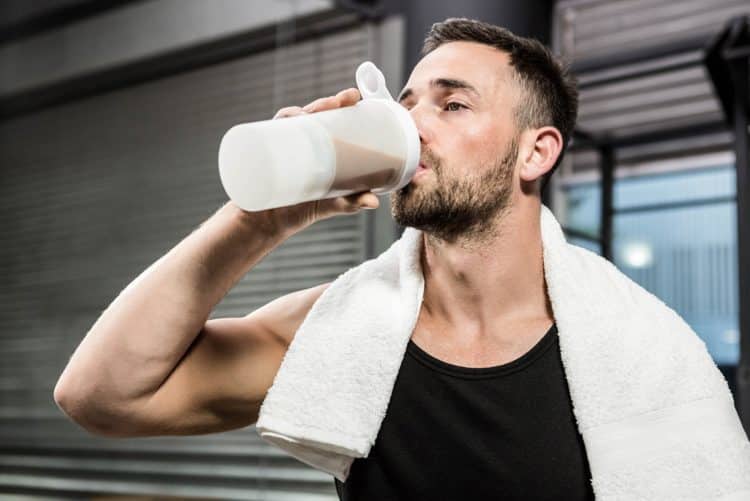
How long it takes for a pre-workout to take effect depends entirely on the ingredients. Stimulants, such as caffeine, will take between 30 and 60 minutes to take full effect, depending on your body’s tolerance.
Many other pre-workout ingredients, including taurine, beta-alanine, and creatine, will take approximately 30 minutes to take effect. Their peak time, or the point when their effects are at their strongest, is about an hour after taking it. That is when they will be at their highest concentration in your bloodstream.
So, if you mix your pre-workout in the gym locker room and drink it as you make your way onto the gym floor, you should rethink your timing. You’re not going to feel the full effects of your supplement for about an hour. You’ll have no effect at all for the first 30 minutes. Most people’s workouts are pretty much done after an hour, so you’re only going to get the full effects as you leave the gym.
[sc name=”style-summary2″ ]
The best time to take a pre-workout is about 30 minutes before the workout begins.
[/sc]
How Long Does a Pre-Workout Last Once Mixed?
Unfortunately, there is no definite answer to this question. It depends on several factors, which we’ll examine in detail. As a general guideline, however, your pre-workout should last between 1.5-2 hours.
Factors Affecting Pre-Workout Potency
Factors that affect your pre-workout duration:
Supplement Type
The quality of the supplement is the single most significant factor influencing how long a pre-workout will last in your body. Pre-workouts contain several ingredients, each of which has different effective durations in the body. Not only that, but the quality of the ingredient may differ between products. A cheap creatine product may last only half as long as a purer, higher-quality product.
Many pre-workouts contain beta-alanine, which offsets fatigue and allows you to recover between sets quickly. A good quality beta-alanine supplement will have an effective time of about 90 minutes. [1]
Supplement ingredients such as l-citrulline, l-arginine, and nitrate act as vasodilators by boosting the body’s natural production of nitric oxide. These allow for greater blood flow and a better pump. They will last for several hours in the body. [2]
Most pre-workouts contain a combination of ingredients with an average effectiveness time of between one and two hours. [3]
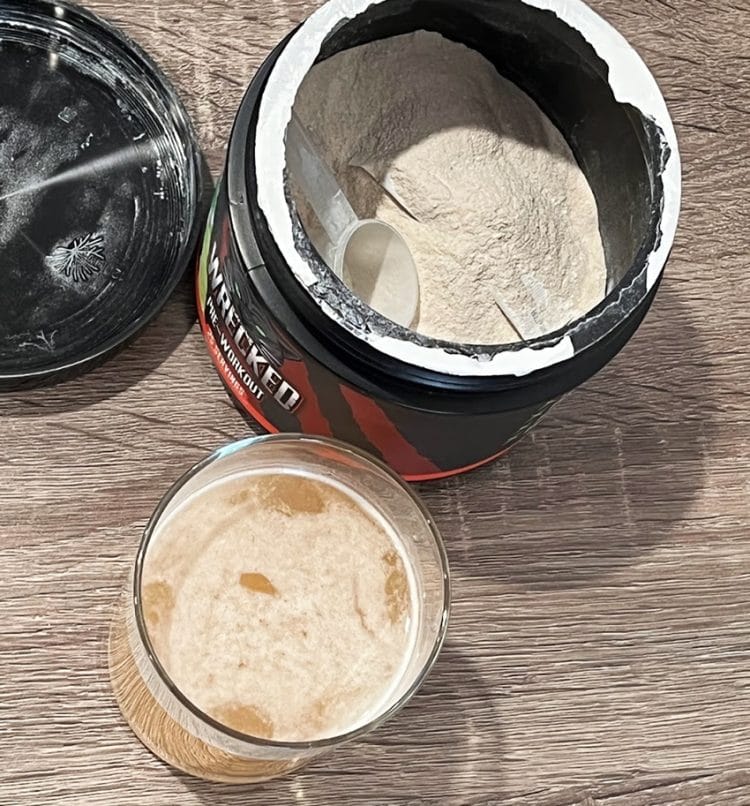
Supplement Dosage
Your pre-workout dosage affects its effective duration in your body. If you double the stated dosage of a product, it will last longer, though not necessarily double the period.
However, the recommended dosage stated on the product label usually allows it to work for between 90 and 120 minutes. You do not want your workout to last longer than two hours, so there’s no reason to take more than the recommended dosage. [4]
Your Physique
A supplement’s effect on your body will depend on your physique. A bodybuilder who weighs 260 pounds and has sub ten percent body fat will need a greater dosage of a pre-workout than a 110-pound marathon runner.
If you are over 200 pounds, you will probably want to move toward the higher range of the recommended dosage to get the supplement to work for an average of 90 minutes in your system.
Nutrition
Big eaters will need a higher dosage of a pre-workout to be effective. The reason is that your digestive enzymes will be busy digesting your food and will not be as effective in breaking down your pre-workout ingredients in the required time to give you the full workout benefits.
People who are under-eating will have an enhanced pre-workout effect. However, this is not a healthy habit. You should eat a quality 50/50 carb/protein mix meal about two hours before your workout.
Lifestyle
Pre-workouts provide an immediate energy burst for your workout. They should not be used as a lifestyle booster to help get you through your day after late-night partying.
If you’re looking for something to negate the ill effects of a partying lifestyle so you can hit the gym, your pre-workout will not do that for you. That’s because your poor lifestyle habits will have already mucked up your system to the extent that the benefits of your pre-workout ingredients will be overshadowed by lack of sleep and the processing of alcohol and whatever else you may have ingested. [5]
While we’re on the subject, you should not take alcohol anywhere near your workout. It will wreak havoc on the key hormones required for workout efficiency, namely testosterone, human growth hormone, and insulin.
The drowsy effect of alcohol on the brain will interfere with the ability to react to signals that come from certain pre-workout ingredients. [6]
Water Intake
Your level of hydration will affect the timing of your pre-workout. The pre-workout ingredients will move more effectively through your digestive system if you are well-hydrated. It is, therefore, important to drink plenty of water around the time of your workout. Additionally, sip water throughout the training session.
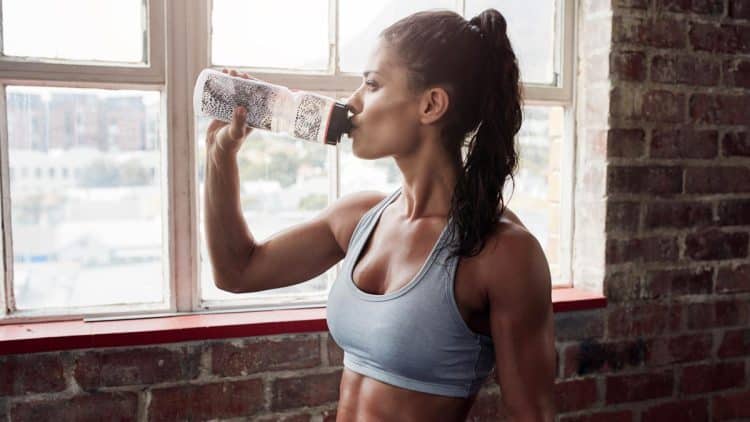
When Should I Take My Pre-Workout?
Take your pre-workout 30 minutes before your training session. This will provide the ingredients enough time to be absorbed into your system so that they are ready to fire from your first rep.
Most people find that taking a pre-workout sup before they leave home for the gym provides them with enough time to benefit fully when they begin their workout.
You should have a pre-workout meal about two hours before heading to the gym. This should be a 50/50 mix of protein and complex carbs, such as chicken and sweet potato.
So, How Do I Know If the Pre-Workout is Working?
There’s a lot of marketing hype around what pre-workouts can do for you. Generally, the reality is a far cry from what the ads claim. You can expect a noticeable, but not a dramatic, increase in your training motivation, energy, and recovery time, and if the product contains nitric oxide enhancers, a muscle pump during the workout.
Some pre-workout ingredients produce physical side effects that tell you they are working. Beta-alanine, for example, may produce a tingling sensation on your scalp, tongue, or fingertips. Caffeine will increase perspiration.
You should monitor the effect of your pre-workout in a diary and compare it to sessions where you are going pre-workout-free. If you don’t notice any difference, switch to another product.
The 11 Best Pre-Workout Ingredients
Your pre-workout is only as good as its ingredients and dosage. Here’s an overview of the 11 best ingredients to look out for on the label.
1. Caffeine
Caffeine is the world’s most popular stimulant. Billions of people rely on it for the mental and physical ‘pick-me-up’ to power them through their day. So, it’s hardly surprising that caffeine is a base ingredient in quality pre-workouts.
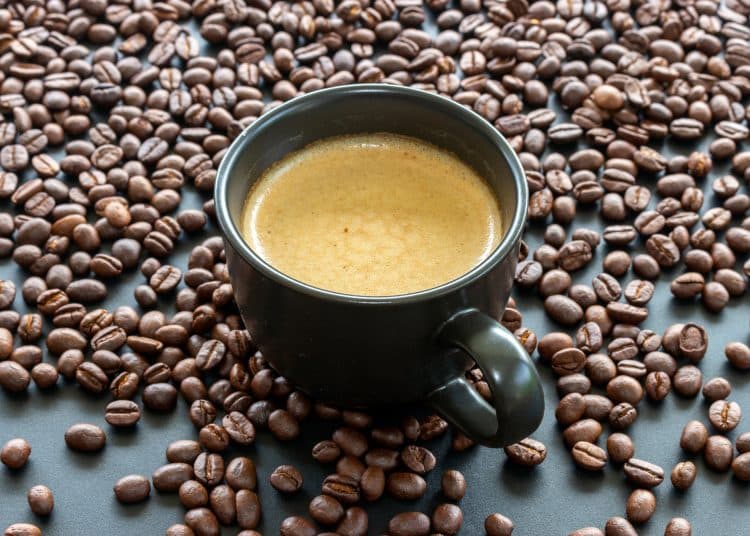
Caffeine is an odorless, slightly bitter-tasting neurotoxic alkaloid found naturally in several plants. Plants produce neurotoxins to protect themselves from insects and other predators. Caffeine dissolves easily in water and has crystals that look like tiny needles. It is a potent central nervous system stimulant that releases dopamine to boost motivation, alertness, and energy. [7]
Caffeine has been shown to have the following workout-boosting effects:
- Improved mental focus
- Enhanced fat loss
- Greater muscular endurance
- Strength increase
[sc name=”style-summary-2nd” ]
Recommended Dosage: 150-250 mg
[/sc]
Related: Caffeine Calculator – Are Your Consuming Too Much?
2. Theanine
Green tea contains the amino acid theanine. It is principally responsible for green tea’s capacity to calm the nerves and revitalize the body. However, theanine has yet another strong effect. It can lessen the immediate negative effects of caffeine on the body without reducing its energy-boosting benefits. Theanine has also been shown to improve cognition and mood. [8]
[sc name=”style-summary-2nd” ]
Recommended Dosage: 200 mg
[/sc]
3. B-Vitamins
The eight water-soluble vitamins that make up the B vitamins are thiamine, riboflavin, niacin, pyridoxine, folic acid, pantothenic acid, biotin, and vitamin B12. Together, the eight vitamins offer various health advantages, such as accelerating metabolism, preserving high energy levels, and improving fat digestion. [9]
Recommended Dosage:
- B1: 1.2 mg
- B2: 1.3 mg
- B3: 16 mg NE
- B5: 5 mg
- B6: 1.3 mg
- Biotin: 30 mcg
- Folic acid: 400 mcg DFE
- B12: 2.4 mcg
4. Citicoline
Citicoline is a nootropic that enhances brain function. Nootropics boost cognitive function, enabling you to concentrate better and be more conscious of the relationship between your mind and muscles when exercising.
Citicoline produces this result by raising the body’s acetylcholine levels. The brain’s neurotransmitter acetylcholine is essential for improving memory, recall, and consciousness. Additionally, citicoline enhances blood flow to the brain, enhancing cognitive function. [10]
Citicoline is added to pre-workouts to improve focus so you can concentrate more on your workout and enhance the mind-muscle connection. Acetylcholine is a neurotransmitter than transports messages between brain cells. When you take citicoline, the body’s acetylcholine levels increase. Citicoline has also been shown to improve blood flow to the brain.
[sc name=”style-summary-2nd” ]
Recommended Dosage: 250-500 mg
[/sc]
5. Citrulline Malate
The non-essential amino acid citrulline bonds with the organic salt molecule malate to form citrulline malate. The amino acid glutamine is used to make citrulline in the intestines. It is crucial to eliminate ammonia, a byproduct of exercise that can hamper energy production and cause weariness and poor performance.
Malate is a naturally occurring substance found in fruits like apples. It plays a part in the Krebs cycle, a chemical event sequence that converts carbs, lipids, and proteins into energy. Malate may also recycle lactate to provide energy. This is essential to keep the muscles from being drained and speed up recovery. Combining malate and citrulline improves training results. [11]
Citrulline is a non-essential amino acid. It is combined with an organic salt called malate to create citrulline malate. When you take citrulline malate, it converts to the nitric oxide precursor arginine. Nitric oxide enlarges the blood vessels, allowing more oxygen and nutrients to get to the working muscles.
[sc name=”style-summary-2nd” ]
Recommended Dosage: 6-8 grams
[/sc]
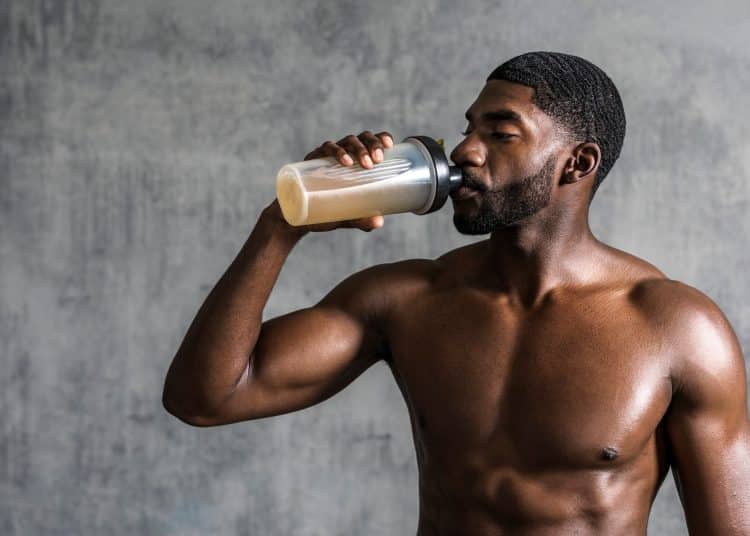
6. Taurine
Taurine is a non-essential amino acid that contains sulfur. It is one of the amino acids in the body in the highest concentrations. Fish, cattle, poultry, and lamb all contain naturally-occurring taurine. It is also a well-liked component of energy beverages like Red Bull.
Due to its capacity to remove calcium from the body, taurine increases the activity of your central nervous system. Additionally, it counteracts the effects of free radicals, a normal side effect of exercise. Taurine supplements will provide additional energy, counteracting weariness and resulting in greater muscle contractions with each rep. [12]
Taurine is an amino acid that is added to supplements for its nootropic effects. It is able to remove calcium from the body, increasing central nervous system activity. It also fights against the free radical damage caused by oxidative stress and increases energy levels.
[sc name=”style-summary-2nd” ]
Recommended Dosage: 1-2 grams
[/sc]
7. Beta-alanine
The human body naturally manufactures the amino acid beta-alanine. Because it is essential for synthesizing carnosine, which is contained in muscle fiber, it is a crucial amino for anabolism. Research and practical experience in the gym have demonstrated that beta-alanine improves muscle contraction while counteracting exercise-induced tiredness. [13]
[sc name=”style-summary-2nd” ]
Recommended Dosage: 2-5 grams
[/sc]
8. Tyrosine
Tyrosine is a non-essential amino acid, meaning the body can make it. High-protein foods like soy, turkey, chicken, fish, peanuts, almonds, and dairy products are good sources of tyrosine. It is a vital precursor of the neurotransmitter dopamine and is utilized in creating protein.
Together, dopamine and serotonin have an effect. Fatigue results when they are out of balance. Tyrosine supplementation aids in keeping the body’s dopamine and serotonin levels balanced. As a result, tiredness is decreased, and performance is improved. [14]
[sc name=”style-summary-2nd” ]
Recommended Dosage: 500-2,000 mg
[/sc]
9. BCAAs
Leucine, isoleucine, and valine make up branch-chain amino acids (BCAAs). Leucine, in particular, is a crucial activator of both protein synthesis and protein degradation. BCAAs can be utilized as fuel for physical activity. Additionally, they will stop the catabolic effects of exercise. After exercise, they boost protein synthesis to facilitate the muscle-rebuilding process. [15]
[sc name=”style-summary-2nd” ]
Recommended Dosage: 6-10 grams
[/sc]
10. Creatine
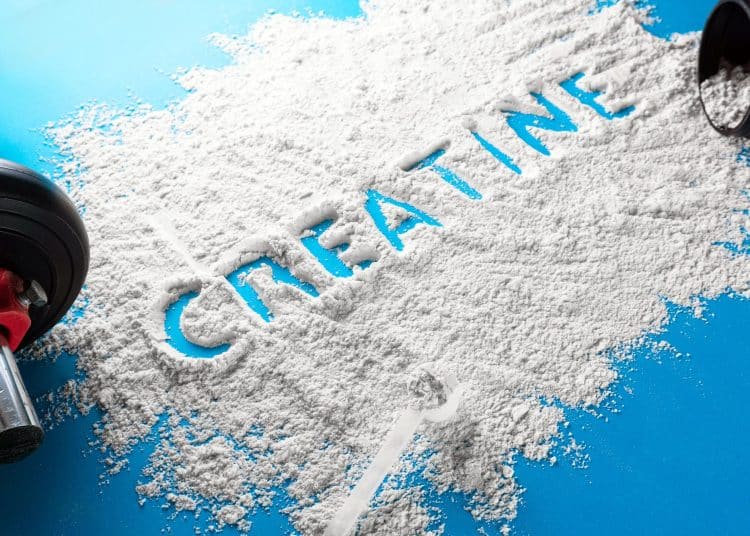
In your muscle cells, creatine and phosphorus combine to form phosphocreatine (PC). When you engage in high-intensity sports like weightlifting or sprinting, this compound, which is rich in energy, nourishes your muscles.
Your body uses phosphocreatine to resynthesize ATP during intense exercise. Performance starts to suffer once these stockpiles are depleted. Your muscles may function at higher rates for longer, thanks to creatine supplementation, which boosts phosphocreatine reserves. An immediate increase in strength will result from this.[17]
[sc name=”style-summary-2nd” ]
Recommended Dosage: 3-5 grams
[/sc]
11. L-Arginine
The amino acid arginine is conditionally essential. Although our bodies can produce arginine, under some circumstances (trauma, illness, stress), the body cannot make enough; hence dietary sources become crucial.
During exercise, arginine can be converted into glucose for energy. Nitric oxide and creatine synthesis both depend on it. Additionally, it has been demonstrated that arginine increases growth hormone production, a potent stimulator of muscle growth. [16]
[sc name=”style-summary-2nd” ]
Recommended Dosage: 3-6 grams
[/sc]
Summary
Pre-workouts are not a magic potion. Good ones will work to increase your training energy, focus, and endurance by between 10 and 20 percent. This effect should last between one and two hours.
Take your pre-workout just before you head to the gym. Then, while training, sip from your water bottle to remain hydrated. Most importantly, monitor the effectiveness of your pre-workout. If it’s not working, change it up and try another product.
References
- Hobson RM, Saunders B, Ball G, Harris RC, Sale C. Effects of β-alanine supplementation on exercise performance: a meta-analysis. Amino Acids. 2012 Jul;43(1):25-37. doi: 10.1007/s00726-011-1200-z. Epub 2012 Jan 24. PMID: 22270875; PMCID: PMC3374095.
- Sureda A, Pons A. Arginine and citrulline supplementation in sports and exercise: ergogenic nutrients? Med Sport Sci. 2012;59:18-28. doi: 10.1159/000341937. Epub 2012 Oct 15. PMID: 23075551.
- Kedia AW, Hofheins JE, Habowski SM, Ferrando AA, Gothard MD, Lopez HL. Effects of a pre-workout supplement on lean mass, muscular performance, subjective workout experience and biomarkers of safety. Int J Med Sci. 2014 Jan 2;11(2):116-26. doi: 10.7150/ijms.7073. PMID: 24465156; PMCID: PMC3894395.
- Mangine GT, Hoffman JR, Gonzalez AM, Townsend JR, Wells AJ, Jajtner AR, Beyer KS, Boone CH, Miramonti AA, Wang R, LaMonica MB, Fukuda DH, Ratamess NA, Stout JR. The effect of training volume and intensity on improvements in muscular strength and size in resistance-trained men. Physiol Rep. 2015 Aug;3(8):e12472. doi: 10.14814/phy2.12472. PMID: 26272733; PMCID: PMC4562558.
- Leasure JL, Neighbors C, Henderson CE, Young CM. Exercise and Alcohol Consumption: What We Know, What We Need to Know, and Why it is Important. Front Psychiatry. 2015 Nov 2;6:156. doi: 10.3389/fpsyt.2015.00156. PMID: 26578988; PMCID: PMC4629692.
- Jung AP, Bishop PA, Al-Nawwas A, Dale RB. Influence of Hydration and Electrolyte Supplementation on Incidence and Time to Onset of Exercise-Associated Muscle Cramps. Journal of Athletic Training. 2005 Jun;40(2):71-75. PMID: 15970952; PMCID: PMC1150229.
- Guest NS, VanDusseldorp TA, Nelson MT, Grgic J, Schoenfeld BJ, Jenkins NDM, Arent SM, Antonio J, Stout JR, Trexler ET, Smith-Ryan AE, Goldstein ER, Kalman DS, Campbell BI. International society of sports nutrition position stand: caffeine and exercise performance. J Int Soc Sports Nutr. 2021 Jan 2;18(1):1. doi: 10.1186/s12970-020-00383-4. PMID: 33388079; PMCID: PMC7777221.
- Juszkiewicz A, Glapa A, Basta P, Petriczko E, Żołnowski K, Machaliński B, Trzeciak J, Łuczkowska K, Skarpańska-Stejnborn A. The effect of L-theanine supplementation on the immune system of athletes exposed to strenuous physical exercise. J Int Soc Sports Nutr. 2019 Feb 15;16(1):7. doi: 10.1186/s12970-019-0274-y. PMID: 30770758; PMCID: PMC6377763.
- Lindschinger M, Tatzber F, Schimetta W, Schmid I, Lindschinger B, Cvirn G, Stanger O, Lamont E, Wonisch W. A Randomized Pilot Trial to Evaluate the Bioavailability of Natural versus Synthetic Vitamin B Complexes in Healthy Humans and Their Effects on Homocysteine, Oxidative Stress, and Antioxidant Levels. Oxid Med Cell Longev. 2019 Dec 12;2019:6082613. doi: 10.1155/2019/6082613. PMID: 31915511; PMCID: PMC6930747.
- Gareri P, Castagna A, Cotroneo AM, Putignano S, De Sarro G, Bruni AC. The role of citicoline in cognitive impairment: pharmacological characteristics, possible advantages, and doubts for an old drug with new perspectives. Clin Interv Aging. 2015 Sep 3;10:1421-9. doi: 10.2147/CIA.S87886. Erratum in: Clin Interv Aging. 2015;10:1625. PMID: 26366063; PMCID: PMC4562749.
- Gough LA, Sparks SA, McNaughton LR, Higgins MF, Newbury JW, Trexler E, Faghy MA, Bridge CA. A critical review of citrulline malate supplementation and exercise performance. Eur J Appl Physiol. 2021 Dec;121(12):3283-3295. doi: 10.1007/s00421-021-04774-6. Epub 2021 Aug 21. PMID: 34417881; PMCID: PMC8571142.
- Jong CJ, Sandal P, Schaffer SW. The Role of Taurine in Mitochondria Health: More Than Just an Antioxidant. Molecules. 2021 Aug 13;26(16):4913. doi: 10.3390/molecules26164913. PMID: 34443494; PMCID: PMC8400259.
- Dolan E, Swinton PA, Painelli VS, Stephens Hemingway B, Mazzolani B, Infante Smaira F, Saunders B, Artioli GG, Gualano B. A Systematic Risk Assessment and Meta-Analysis on the Use of Oral β-Alanine Supplementation. Adv Nutr. 2019 May 1;10(3):452-463. doi: 10.1093/advances/nmy115. PMID: 30980076; PMCID: PMC6520041.
- Ipson BR, Fisher AL. Roles of the tyrosine isomers meta-tyrosine and ortho-tyrosine in oxidative stress. Ageing Res Rev. 2016 May;27:93-107. doi: 10.1016/j.arr.2016.03.005. Epub 2016 Mar 31. PMID: 27039887; PMCID: PMC4841466.
- Mann G, Mora S, Madu G, Adegoke OAJ. Branched-chain Amino Acids: Catabolism in Skeletal Muscle and Implications for Muscle and Whole-body Metabolism. Front Physiol. 2021 Jul 20;12:702826. doi: 10.3389/fphys.2021.702826. PMID: 34354601; PMCID: PMC8329528.
- Brunner JS, Vulliard L, Hofmann M, Kieler M, Lercher A, Vogel A, Russier M, Brüggenthies JB, Kerndl M, Saferding V, Niederreiter B, Junza A, Frauenstein A, Scholtysek C, Mikami Y, Klavins K, Krönke G, Bergthaler A, O’Shea JJ, Weichhart T, Meissner F, Smolen JS, Cheng P, Yanes O, Menche J, Murray PJ, Sharif O, Blüml S, Schabbauer G. Environmental arginine controls multinuclear giant cell metabolism and formation. Nat Commun. 2020 Jan 22;11(1):431. doi: 10.1038/s41467-020-14285-1. PMID: 31969567; PMCID: PMC6976629.
- Kreider RB, Kalman DS, Antonio J, Ziegenfuss TN, Wildman R, Collins R, Candow DG, Kleiner SM, Almada AL, Lopez HL. International Society of Sports Nutrition position stand: safety and efficacy of creatine supplementation in exercise, sport, and medicine. J Int Soc Sports Nutr. 2017 Jun 13;14:18. doi: 10.1186/s12970-017-0173-z. PMID: 28615996; PMCID: PMC5469049.


